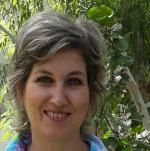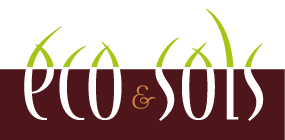 Chercheure
Chercheure
IRD Dakar
IRD, UMR Eco&Sols / IESOL
Laboratoire Commun de Microbiologie IRD-ISRA-UCAD
Centre de Recherche de Bel Air, Dakar-Sénégal
T. b. +221 33 849 33 24
T. m. +221 77 517 36 09
Email: This email address is being protected from spambots. You need JavaScript enabled to view it.
Parcours
2024 : Chargée de projet scientifique IRD à Eco&Sol affectée à IESOL, Dakar-Sénégal
2009/2023 : Chargée de projet scientifique IRD à l’UMR LSTM affectée au Laboratoire Commun de Microbiologie IRD-ISRA-UCAD, Dakar, Sénégal
2008/2009 : Chercheur-consultant au Conseil National de Concertation des Ruraux (CNCR) Dakar, Sénégal
2003/2008 : Chargée de projet scientifique contractuel IRD à l’UMR LSTM affectée au Laboratoire Commun de Microbiologie IRD-ISRA-UCAD, Dakar-Sénégal
1999-2003 : Doctorat de 3ème cycle en Biologie Végétale, UCAD, Dakar, Sénégal
1996-1998 : Diplôme d’études approfondies en Biologie Végétale, UCAD, Dakar, Sénégal
1995 : Ingénieur de recherche au Département de Physiologie végétale, Université D’Etat de Donetsk, Ukraine
1989-1994 : Master International en Biologie, Option Physiologie Végétale, Université D’Etat de Donetsk, Ukraine
Compétences
Je m’intéresse aux systèmes alimentaires, plantes tropicales x micro-organismes symbiotiques du sol (rhizobiums et champignons mycorhizienes), dans le but d’amélioration durable de la productivité agricole dans le contexte de changement climatique (appauvrissement des sols, instabilité des pluies et stress environnementaux tels que salin et hydrique) en Afrique de l’Ouest et au Sénégal en particulier. La recherche porte sur la diversité et l’écologie des microorganismes dans un système plante-environnement à travers un réseau de parcelles expérimentales paysannes. Depuis une dizaine d’années je m’investis également dans un projet sociétal de valorisation des symbioses pour la mise en place au Sénégal de la filière de production locale de biostimulants microbiens sous contrôle qualité par le transfert aux agriculteurs de la technologie d’inoculation et du savoir-produire de l’inoculum grâce au partenariat multi-acteurs.
Publications (dix dernières années)
- Nadiéline C. V., Krasova-Wade T., Ndiaye M. F., Diouf D. 2023. Evaluation des capacités de matiéres organiques comme support d’inoculum des bactéries solubilisatrices du phosphore en zone tropicale semi- aride. Appl. Biosci. Vol: 192, 20305-20318.
- Neyra M., Krasova-Wade T., Le Quéré A., Gouriveau F. 2022. Les living labs, facilitateurs de transformation des chaînes agri-alimentaires. Un dispositif d’accompagnement à distance d’expérimentations agroécologiques multi-partenaires au Sénégal, p 138. In Atta- Krah K., Chotte J.-L., Gascuel C., Gitz V., Hainzelin E., Hubert B., Quintero M., Sinclair F. (éd.), 2022. Transformations agroécologiques pour des systèmes alimentaires durables. Panorama de la recherche France-CGIAR. Les dossiers d’Agropolis International, 26. Agropolis International, Montpellier, France. 148 p. DOI : 10.23708/fdi:010083985 - ISSN : 1628-4240.
- Diop I., Ndoye F., Diédhiou A. G., Krasova Wade T., Do Rego F. A., Noba K., Ambrosi J. P., Kane A. 2021. Diversity and spore density of arbuscular mycorrhizal fungi in the rhizosphere of Cowpea (Vigna unguiculata [] Walp.) cultivated in different soils in Senegal. J.Anim.Plant Sci. (ISSN 2071-7024) Vol.48 (1): 8552-8565. https://doi.org/10.35759/JAnmPlSci.v48-1.1
- Le Quére A., Diop S., Dehaene N., Niang D., Do Rego F., Fall S., Neyra N., Krasova‐Wade T. Development of an Illumina‐based analysis method to study bradyrhizobial population structure—case study on nitrogen‐fixing rhizobia associating with cowpea or peanut. Applied Microbiology and Biotechnology (2021) 105:6943–6957. https://doi.org/10.1007/s00253-021-11525-2.
- Nadiéline C.V., Ndiaye M.F., Fall S., Krasova Wade, Le Quéré A., Diouf D. 2019. Isolation and characterization of potential phosphate solubilizing bacteria in two regions of Senegal. African Journal of Microbiology Research, 13:609-618. (doi.org/10.5897/AJMR2019.9179)
- Le Quéré A., Krasova Wade T. La recherche participative au Sénégal, une bonne recette pour booster l’agriculture. TheConversation. (https://theconversation.com/la-recherche-participative-au-senegal-une-bonne-recette-pour-booster-lagriculture-124828)
- Le Quéré A., Krasova Wade T. Insights from Senegal: involving farmers in research is key to boosting agriculture. TheConversation (https://theconversation.com/insights-from-senegal-involving-farmers-in-research-is-key-to-boosting-agriculture-128085)
8. Le Quéré A., Gully D., Teulet A., Navarro E., Gargani D., Fardoux J. , Cruveiller S., Neyra M., Giraud E., Krasova Wade T. 2019 Complete Genome Sequence of Bradyrhizobium sp. Strain ORS3257, an Efficient Nitrogen-Fixing Bacterium Isolated from Cowpea in Senegal. Microbiol. Resour. Announc. 8(3) doi: 10.1128/MRA.01449-18
9. Soumaré A., Wade M., Do Rego F., Fall S., Krasova Wade T. 2017. Preliminary screening of cowpea-Bradyrhizobium symbiotic traits subjected to salinity stress in Senegal. Afr. J. Agric. Res. 12(45) : 3233-3243.
- Hadou H., Sanon K. B., Krasova Wade T., Kane A., Ndoye I., Traoré A. S. 2015. Réponde à la double inoculation mycorhizienne et rhizobienne du niébé (variété KVX396-4-5-2D) cultivé au Burkina Faso. IJBCS, Int. J. Biol. Chem. Sci. 9(3) : 1485-1493.
- Diop I., Ndoye F., Kane A., Krasova-Wade T., Pontiroli A., Do Rego F. A., Noba K., Prin Y. 2015. Arbuscular mycorrhizal fungi (AMF) communities associated with cowpea in two ecological site conditions in Senegal. AJMR, 9(12), pp. 1409-1418.
- Do Rego F. A, Diop I., Sadio O., Da Sylva M. C., Agbangba C. O., Touré O., Kana K., Neyra M., Ndoye I., Krasova Wade T. Response of Cowpea to Symbiotic Microorganisms Inoculation (Arbuscular Mycorrhizal Fungi and Rhizobium) in Cultivated Soils in Senegal, UJPS, 3(2): 32-42.
- Kouyaté Z., Krasova Wade T., Yattara I. I., and Neyra M. 2014. Effects of cropping system and cowpea variety (Vigna unguiculata Walp) on the diversity of native cowpea bradyrhizobia and millet yield in the Sudano Sahelian zone of Mali. IRJAS, Vol. 4(2) : 30-39.
- Krasova Wade T., Le Quéré A., Laguerre G., N’Zoué A., Ndione J.-A., doRego F., Sadio O., Ndoye I., Neyra M. 2014. Eco-geographical diversity of cowpea bradyrhizobia in Senegal is marked by dominance of two genetic types. Appl. Microbiol., 37 : 129-139.
Valorisation industrielle
BREVET d’invention OAPI : T. Krasova, A. Le Quéré, M. Dia, Y. I. Thioye, A. Gueye, M. Sonko, O. Gueye, D. Bitey. Semoir multifonctionnel. Model d’utilité BOPI 12 BR/2019.
Vidéos
- Unité de production d’inoculum de champignons mycorhiziens de Ngoye, Bambey, Infos du matin - 07 Octobre 2021 : https://www.youtube.com/watch?v=5MHh-0P8X9s&feature=youtu.be
- Des biofertilisants de qualité pour des terres fertiles - Octobre 2022 : https://www.youtube.com/watch?v=VzwlbDOoOZY






